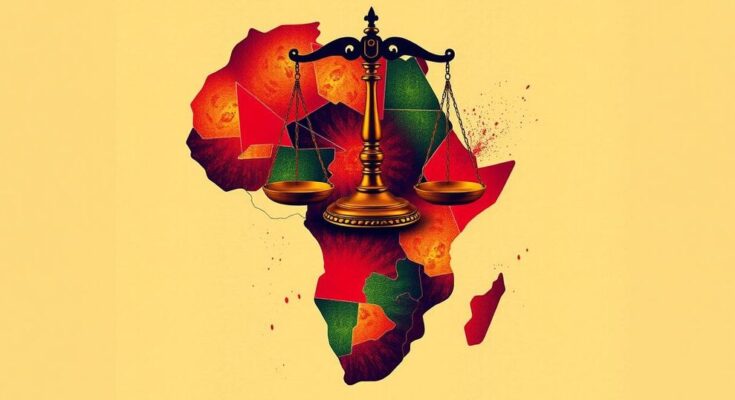As the conflict in eastern Democratic Republic of Congo (DRC) intensifies, there are mounting calls for non-military resolutions, prominently the ongoing case in the African Court on Human and Peoples’ Rights. This court, part of the African Union (AU), aims to safeguard human rights across the continent. The DRC brought this significant case against Rwanda on 21 August 2023, asserting that Rwanda has breached the foundational African Charter by allegedly backing the M23 rebels, who have caused widespread devastation and suffering.
The DRC claims that since 2021, Rwanda has supported the M23 rebels, resulting in mass killings, displacements, and destruction of vital infrastructures such as schools. Rwanda flatly denies these allegations. As this case unfolds, it becomes a crucial moment for assessing the African Court’s role in enforcing human rights law and resolving disputes through peaceful means among nations.
This case marks a historic first, as it is the inaugural inter-state case presented before the African Court, which allows one member state to hold another accountable for human rights violations under the African Charter. With only 34 out of 55 AU states accepting the court’s authority, this case could become a landmark precedent in African jurisprudence, challenging nations to uphold human dignity over national interests.
This legal battle also highlights the necessity for African nations to embrace judicial resolutions via an independent body of judges, curbing reliance on military interventions. Eleven judges currently preside over the court in Arusha, Tanzania, and their decision could inspire future diplomatic resolutions in similar disputes across Africa.
Before the case proceeds, the court must address Rwanda’s preliminary objections regarding its jurisdiction. A favourable ruling could lead to legal consequences for Rwanda, including potential reparations. However, historical tendencies show that less than 10% of the court’s decisions have been fully complied with, which raises concerns about the AU’s ability to enforce its rulings.
Rwanda maintains that the court lacks the authority over acts conducted outside its borders while the DRC contends that nations hold responsibility for actions of their armed forces operating abroad. The DRC insists a clear dispute exists, pointing to multiple failed diplomatic resolutions, while Rwanda argues that internal legal remedies have not been fully exhausted by victims.
As the case develops, the African Court’s decision-making process and the subsequent public hearing will be pivotal. Although Rwanda opposes the court’s competence, both nations are bound by their commitment to uphold its decisions. It will be fascinating to see how the AU navigates this challenging legal landscape and whether it can indeed serve as a reliable arbiter of justice in Africa.
The DRC has filed a groundbreaking case against Rwanda at the African Court, claiming violations of human rights linked to support for M23 rebels. This marks the first inter-state case in the court’s history, which could set a precedent for future human rights enforcement in Africa. Preliminary objections from Rwanda challenge the case’s jurisdiction, but both nations have committed to honouring the court’s verdict. The outcome may profoundly impact the AU’s role in promoting justice across the continent.
The DRC vs Rwanda case at the African Court is a watershed moment for human rights enforcement in Africa, setting a pivotal precedent that could encourage peaceful resolutions among member states. However, serious concerns about compliance with judgments and the AU’s enforcement capabilities loom large. As both nations engage in this legal battle, the outcome will test not only the court’s authority but also the collective resolve of the AU to uphold human rights and justice on the continent.
Original Source: theconversation.com



